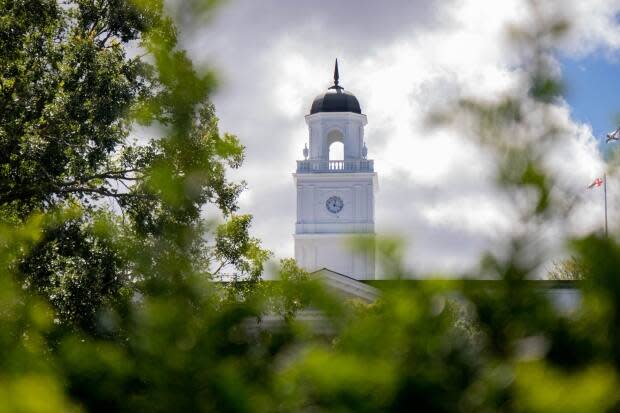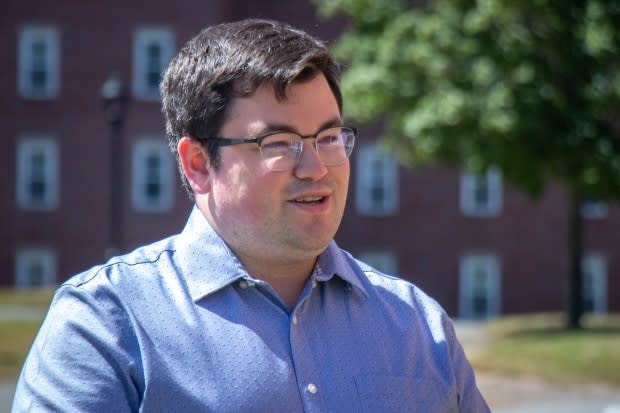Small Nova Scotia university towns grapple with big COVID-19 concerns
Nova Scotia's measures to prevent the spread of COVID-19 are about to be tested by an influx of university students from outside the Atlantic bubble.
Most universities have opted to focus on online learning, but others, like Acadia University in Wolfville and St. Francis Xavier University in Antigonish, have chosen a combination of virtual and in-person classes.
"We have a community, a demographic that's considered vulnerable," said Wolfville Mayor Jeff Cantwell. "We cannot allow an outbreak in this community. We have to mitigate any kind of outbreak that's gonna take place. We are taking this very seriously."
He said an outbreak of COVID-19 would be devastating for another reason.

"If Acadia is put at risk and they have to go full-time online, or they have to shut down for a while because there's a significant outbreak and they can't hold classes, that probably will also lead to the shutting down of the businesses again like we had in March or April," Cantwell said.
"That's gonna be absolutely devastating for this community."
To help minimize the spread of COVID-19, strict guidelines are in place for testing and isolating out-of-province students. In addition to self-isolating for 14 days upon arriving in the province, they will be tested three times for the coronavirus before they can attend class or go out in the community.

People accompanying students are also expected to self-isolate themselves for 14 days, but there's less oversight.
Asked about ensuring that people who accompany students also self-isolate, Cantwell said he's aware of people coming into the region and wearing their failure to isolate as a "badge of honour."
On Tuesday, a student in Antigonish was issued a $1,000 fine for violating self-isolation rules.
Both Wolfville and Antigonish have been working with the universities and other stakeholders to ensure students and their families are aware of the regulations.

"We've been working very closely with the town, as well as the local RCMP," said Elizabeth Yeo, the vice-president of students at St. FX. "We have a working group, we've been calling it the community coalition, and that has been meeting every second week for the last number of months.
"And through the collaborative work of that committee, we've developed a strategy that we're calling the good neighbours strategy."
Brendan MacNeil, president of the Acadia Students' Union, said students and their families need to be aware of the community they are in.
"This isn't just a young millennial town or something where it's just a bunch of students," he said. "It is a very real risk that we live amongst a large elderly population."
First-year students often rely on an accompanying family member to help them settle into an unfamiliar environment.
Madeleine Stinson, president of the student union at Dalhousie University in Halifax, said having familiar faces around can help ease the transition to university life.

"Having my parents here was definitely very supportive, " she said. "It was great having them drive me ... and help me move in."
But that may no longer be the norm at universities amid COVID-19.
"That traditional university goodbye, some of those things won't be able to happen in the same way," said Chad Johnstone, the director of residence and student life at Acadia.
MORE TOP STORIES


